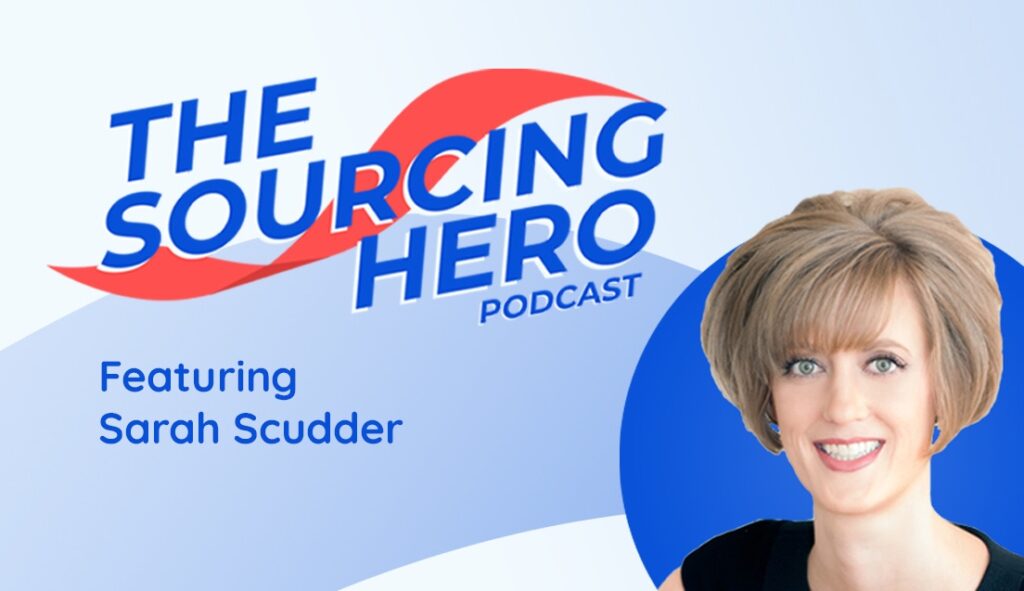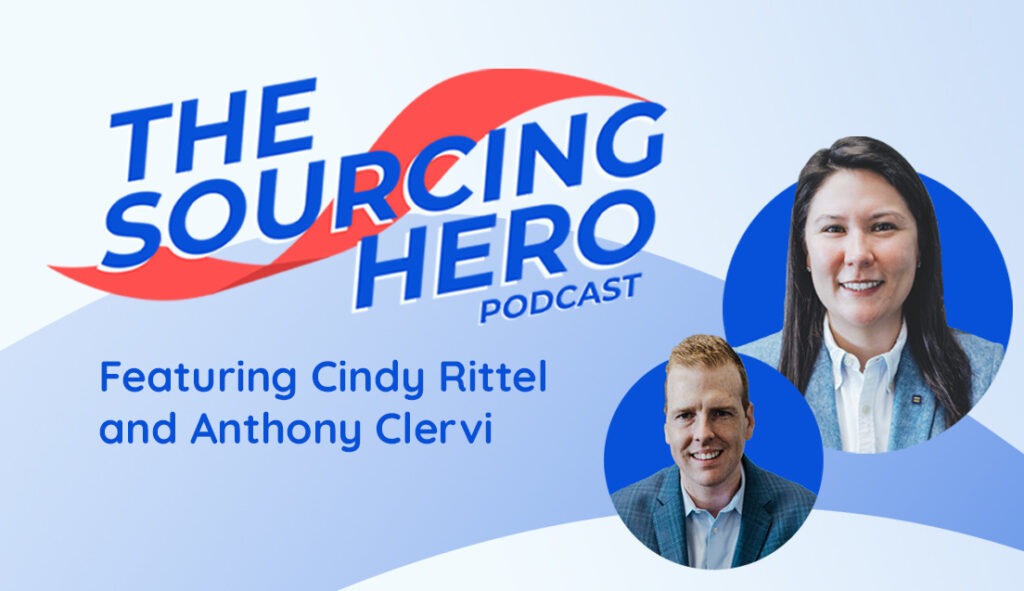Episode 18: Women Shaping Procurement Live Panel Session #1
By Katherine McCleery | March 22, 2021
Una sent out a survey asking 100+ women in procurement about the impact women had on the industry in 2020. One answer is the ‘why’ behind this panel. Samantha Stryker responded and said, “For centuries, women fought for equal footing. In the last century, we saw women gain speed and accessibility to achieve ever higher than before….Those who have powered through all the change while painfully embracing the new normal of their chaotic schedules are armed to the teeth to continue expanding women’s presence in leadership, in navigating transformational efforts.”
This session is about celebrating women in procurement, sourcing, and supply chain. But celebration isn’t enough. The industry needs to bring awareness to the gender pay gap, to diversity within the workplace, and to all of the challenges that women are facing. It’s time to take action. Una has a privilege, responsibility, and a platform to do so. The goal of this panel is to prepare listeners to be an ally for women in this industry.
Today’s Panel:
Dawn Tiura: President and CEO of Sourcing Industry Group (SIG)
Cindy Rittel: Senior Sourcing Advisor at Una
Jill Robbins: President of Business Fierce
Listening Guide
[1:55] Celebrating women shaping procurement
[3:55] Results of the procurement survey
[6:43] Dawn Tiura, Cindy Rittel, and Jill Robbins
[12:48] Women in procurement rising to the challenge
[23:21] Continue the trend of empathy + understanding
[26:06] Work-from-home and business outcomes
[31:00] How to find a female mentor in procurement
[32:02] Female talent retention + recruitment + flexibility
[34:12] Will AI dominate the procurement role?
[39:54] The importance of establishing supply chain KPIs
[46:00] Breaking the chains of female inferiority in procurement
[51:22] Certifications in the procurement field

Highlights
Women in procurement are rising to the challenge
In 2020, women in leadership went into their own self-panic—but couldn’t do it in front of staff. They had to be strong and nurturing. They tapped into empathy while showing incredible strength and positivity. Dawn points out that the pandemic also taught us that you need to move past normal boundaries and have conversations that you’d never have. Women are having conversations about a flexible work schedule and homeschooling their children. The empathy for employees has increased.
She emphasizes that procurement is at the crux of every bad decision that takes place in a company. Procurement can impact change as it’s happening. It’s never the same from one thing to the next. You have to be a salesperson, an influencer, and a change manager. You can influence outcomes.
Dawn also notes that you don’t do sourcing to people. Procurement creates agreements and guides people to buy off of these contracts. You can have the best impact, but if people don’t want to follow you, they won’t get the savings and necessary changes. People make the changes. People adopt the new norms. If you lose empathy you will lose out—and you won’t be invited to the table.
Jill agrees that you must contribute, be flexible, and show people that you care. You must coach for improvement, challenge people, and set the bar high—but do it with empathy.
A conversation on work-from-home and business outcomes
Jill believes that business outcomes will continue to improve, but the results may not look the same. She believes we’ll likely see more creativity, autonomy, and trying new things. But she notes that it’s all about bringing the stakeholders with you.
When the pandemic started, Jill’s organization was separating from a parent company of over 60 years. She was working around the clock. She would be on phone calls before her son woke up in the morning all through dinner. He’d come into the room and say “Mommy, you’re still working? Aren’t you so tired of working so much?” She realized her priorities were out of whack. A few months later, she took leave to spend time with him. You have to remember that it’s not just about the business outcomes.
How can you find a female mentor in procurement? How does a flexible workplace impact female talent recruitment and retention? Listen to hear their thoughts.
Will AI dominate the procurement role?
Cindy notes that the pandemic split the workforce into “essential” and “nonessential” categories. For those that were essential workers, leaders had to keep them coming in and working. When someone got sick a whole production line could get shut down. So of course the industry wants to know how to automate to keep their businesses up and running.
Cindy is a huge fan of automation. She states that “Smart people don’t want to do dumb work.” Most of what is automated is “dumb” work that is repetitive and boring. A shift toward automation won’t hit women worse than men. But procurement is moving toward strategic thinkers versus tactical execution.
Why it’s time to establish supply chain KPIs
Cindy is an advocate of KPIs because they drive what you need to do to be successful. They are measurable goals to hit. KPIs allow you to ask, “What does success look like for you?
What went well? What didn’t go well?”
Cindy works with members to start small with KPIs: What’s important to you and your organization? Is delivery important? Cost? Quality? The goal is to get something measurable written down so you know moving forward if standards are being hit or not. Are you looking at your current KPIs? Are you adjusting them?
Procurement people are the most empathetic to the supply chain. But Cindy emphasizes that at the end of the day, you want answers and corrective action. You need to add corrective action to a scorecard so when there is disruption in a supply chain that you have a plan to move forward. Now is the time to have these reflective conversations. Now is the time to clean up the mess and make things better than they were.
Breaking the chains of female inferiority in procurement
Jill notes that you can change and lead the way you want to be led. The best way to change is to push the envelope. Have tough conversations with HR. Push yourself and deliver results that are better than your peers. Bring best practices in. Innovate and collaborate with suppliers. This is an opportunity. The best performer should be rewarded—male or female.
Mentions
Host: Katherine McCleery, Marketing Director
Special Guests: Dawn Tiura | Jill Robbins | Cindy Rittel



